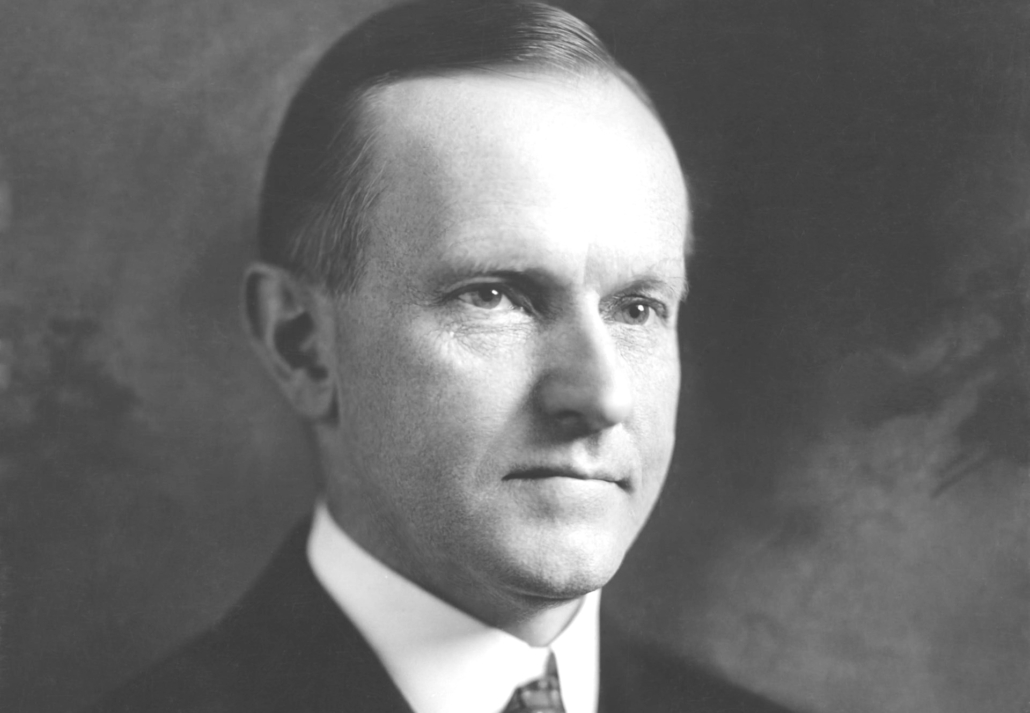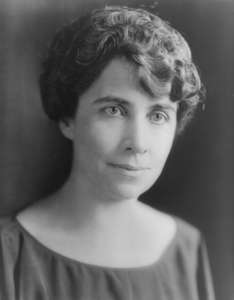REVIEW POTPOURRI: Calvin Coolidge
Calvin Coolidge
by Peter Cates
Calvin Coolidge
The 30th President Calvin Coolidge (1872-1933) had the kind of wife in the former First Lady Grace Goodhue Coolidge (1879-1957) who was a rarity when it came to truly being on the same page as her husband. She catered to just about every whim in him possible, although Cal had such a calm balanced unflappable personality and may not have given into whims very often.
The seven pages devoted to Mrs. Coolidge in Christine Sadler’s book America’s First Ladies abound in choice anecdotes and quotes, especially in its first three paragraphs:
Grace Goodhue Coolidge
“After Grace Coolidge became First Lady in the middle of a hot August night in the Plymouth, Vermont, farmhouse of her father-in-law, she went back to bed and slept easily. Not many women could have accomplished this feat, but then nobody else was married to Calvin Coolidge; the little red-headed president who always looked as if he smelled something burning and who never spoke to anybody if he could avoid the experience.
“If Grace had not been an unusual woman she never would have married Coolidge in the first place, and her mother, for one, could never see why she did. But Grace and her merry father, Captain Andrew I. Goodhue, a steamboat inspector for vessels plying Lake Champlain, always understood the Coolidge appeal. She was the completely happy wife, and that was the secret of her phenomenal success as First Lady.
“Grace had found an extra kerosene lamp for the dramatic swearing-in rites so that anxious reporters, who rushed to Plymouth after news of the unexpected death of President Harding, could see what they were writing. She watched with interest while a telephone line was strung up by emergency crews. But at around two-thirty in the morning, after the hullabaloo connected with becoming president was over, it would never have occurred to her not to accompany her husband back to bed. Nor would he have permitted such deviation from the norm. And naturally she would go back to sleep if he ordered her to do so. “
So begins, on August 3, 1923, the almost six years Coolidge would serve in the White House and ones bombarded with challenges:
The scandals of Harding’s cabinet.
The rise of the Ku Klux Klan from very low numbers to 4 million members by 1924 and the increase in lynchings.
The rise of bootlegging gangsters, and not just in Chicago, due to the “Noble Experiment of Prohibition and the naïve belief of its supporters in the perfectibility of human beings.”
The sometimes violent reactions of big business, government and society itself to any form of non-conformity, not just with progressives, socialists, free-thinkers and any other individuals whose world views deviate from their norms.
The wild partying and increasingly “loose” morals to be found at social gatherings of what’s been termed the “Jazz Age.”
The frantic speculations on Wall Street.
And finally, in a strange cause and effect manner, a terrible disillusionment with the traditional values and hopes that had sustained the country since the American Revolution, especially among veterans returning from the bloodshed of World War I.
Coolidge responded much of the time to these challenges with a hands off leadership style, admittedly disastrous in certain respects, but he did keep a close eye on events.
He also may have had a problem with narcolepsy and reportedly slept 12 hours a night while still needing a four-hour nap; these figures might be slightly exaggerated, even as H.L. Mencken did not help with the real truth about Coolidge’s sleepiness by such comments as the following – “Coolidge’s chief feat was to sleep more than any other president…The itch to run things did not afflict him; he was content to let them run themselves.”
Mencken did concede some good points – “His failings are forgotten: the country remembers only…that he let it alone. Well, there are worse epitaph for a statesman.”
Responsible journalism is hard work!
It is also expensive!
If you enjoy reading The Town Line and the good news we bring you each week, would you consider a donation to help us continue the work we’re doing?
The Town Line is a 501(c)(3) nonprofit private foundation, and all donations are tax deductible under the Internal Revenue Service code.
To help, please visit our online donation page or mail a check payable to The Town Line, PO Box 89, South China, ME 04358. Your contribution is appreciated!




Leave a Reply
Want to join the discussion?Feel free to contribute!